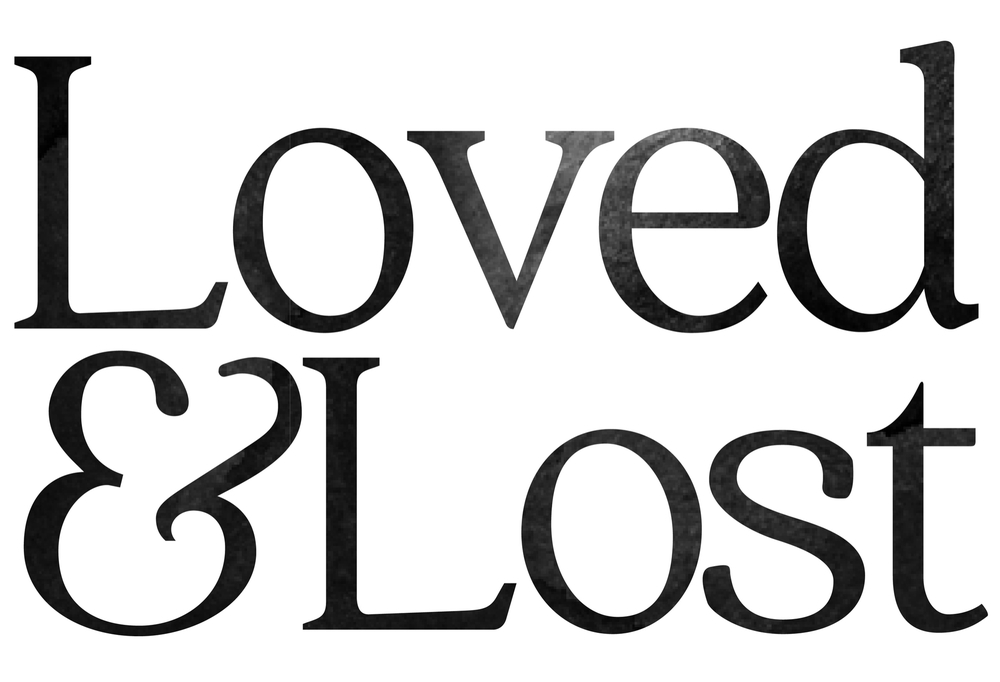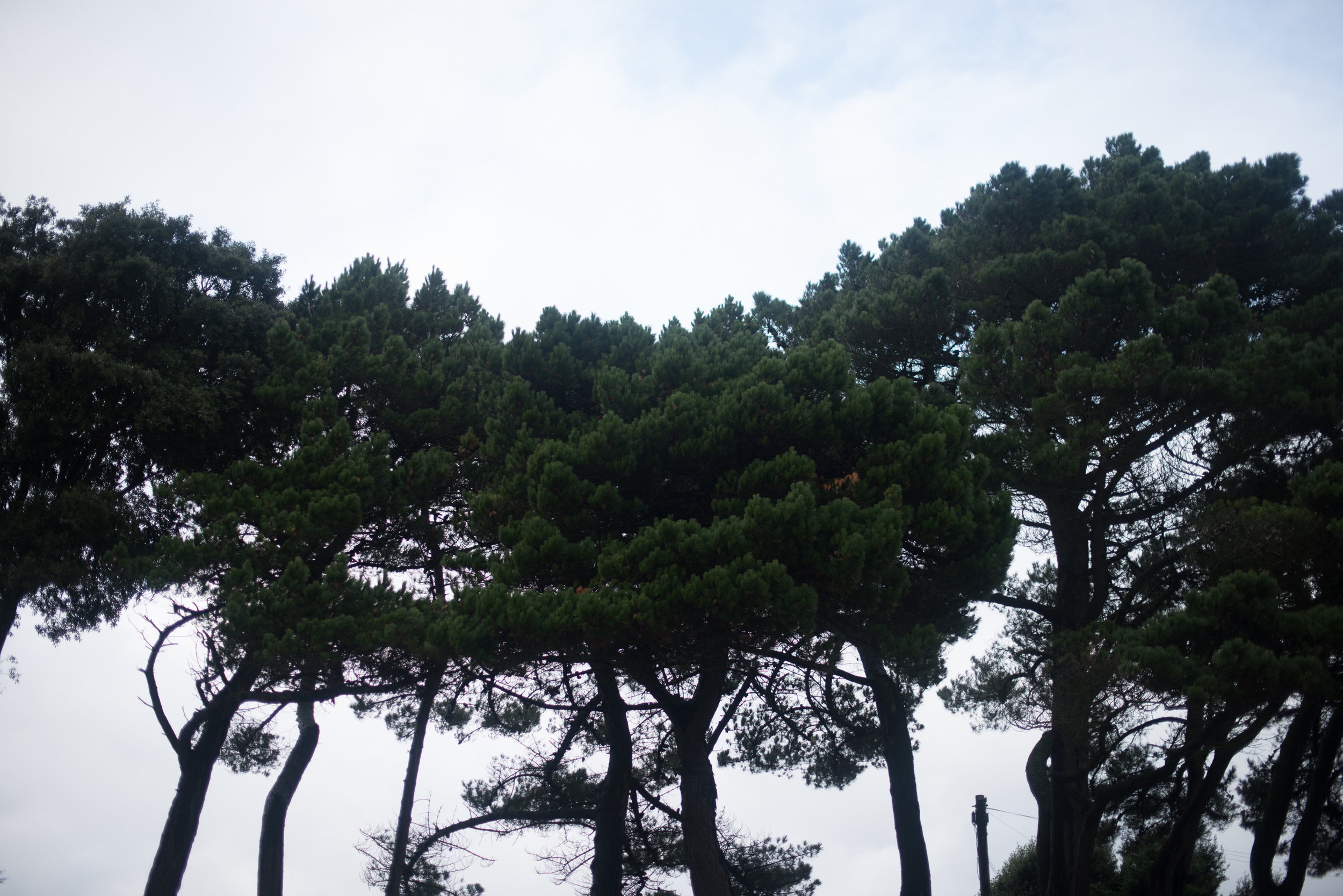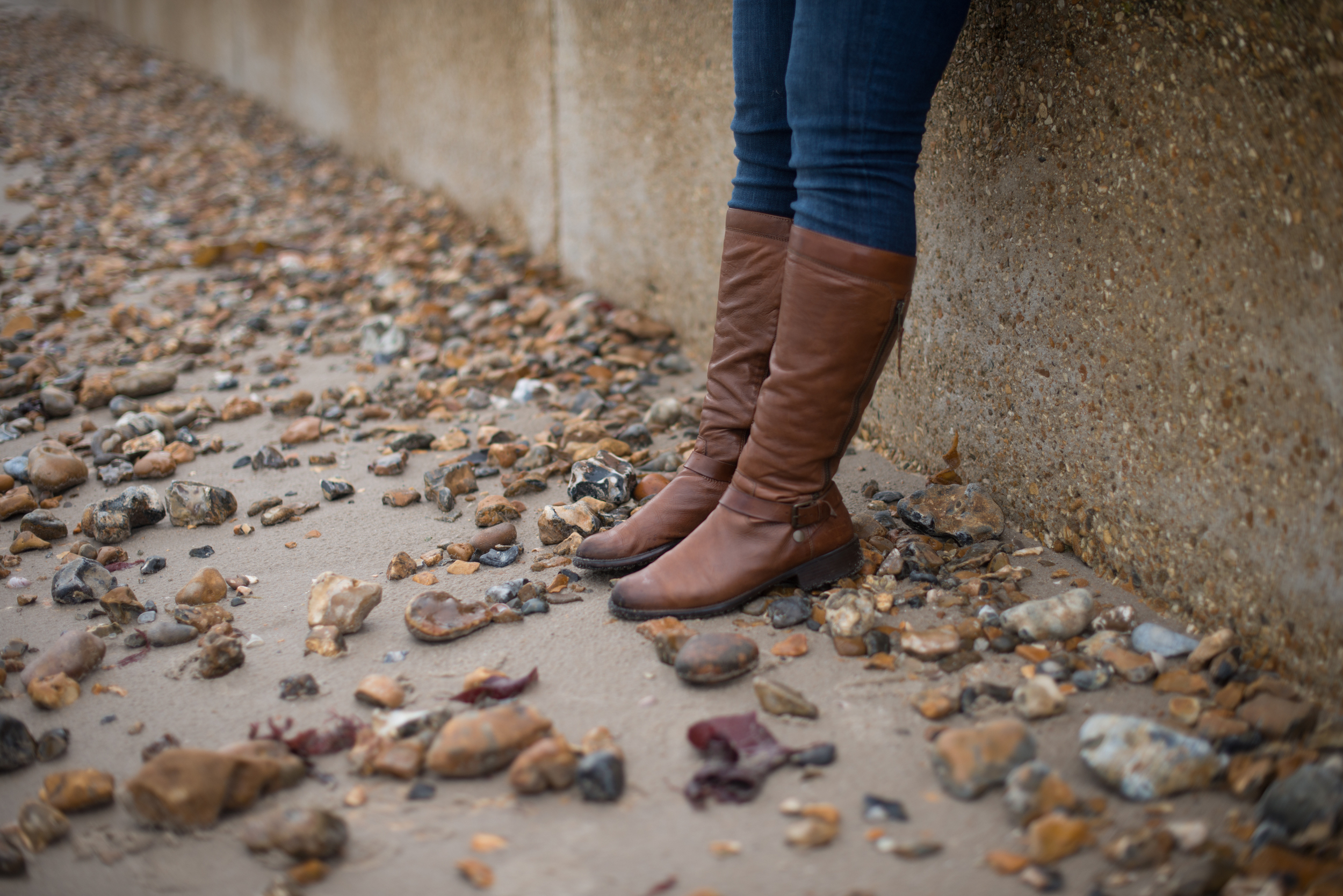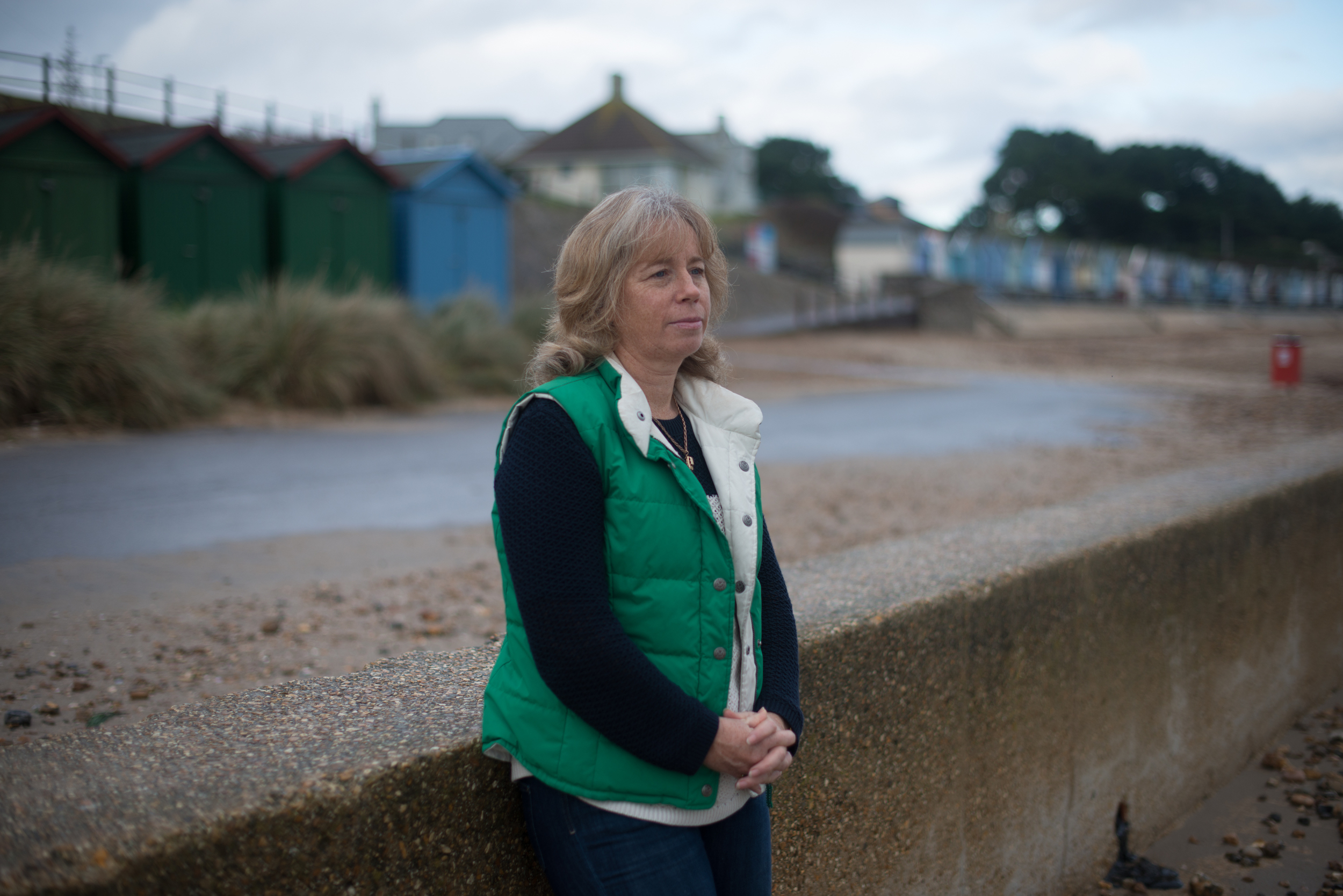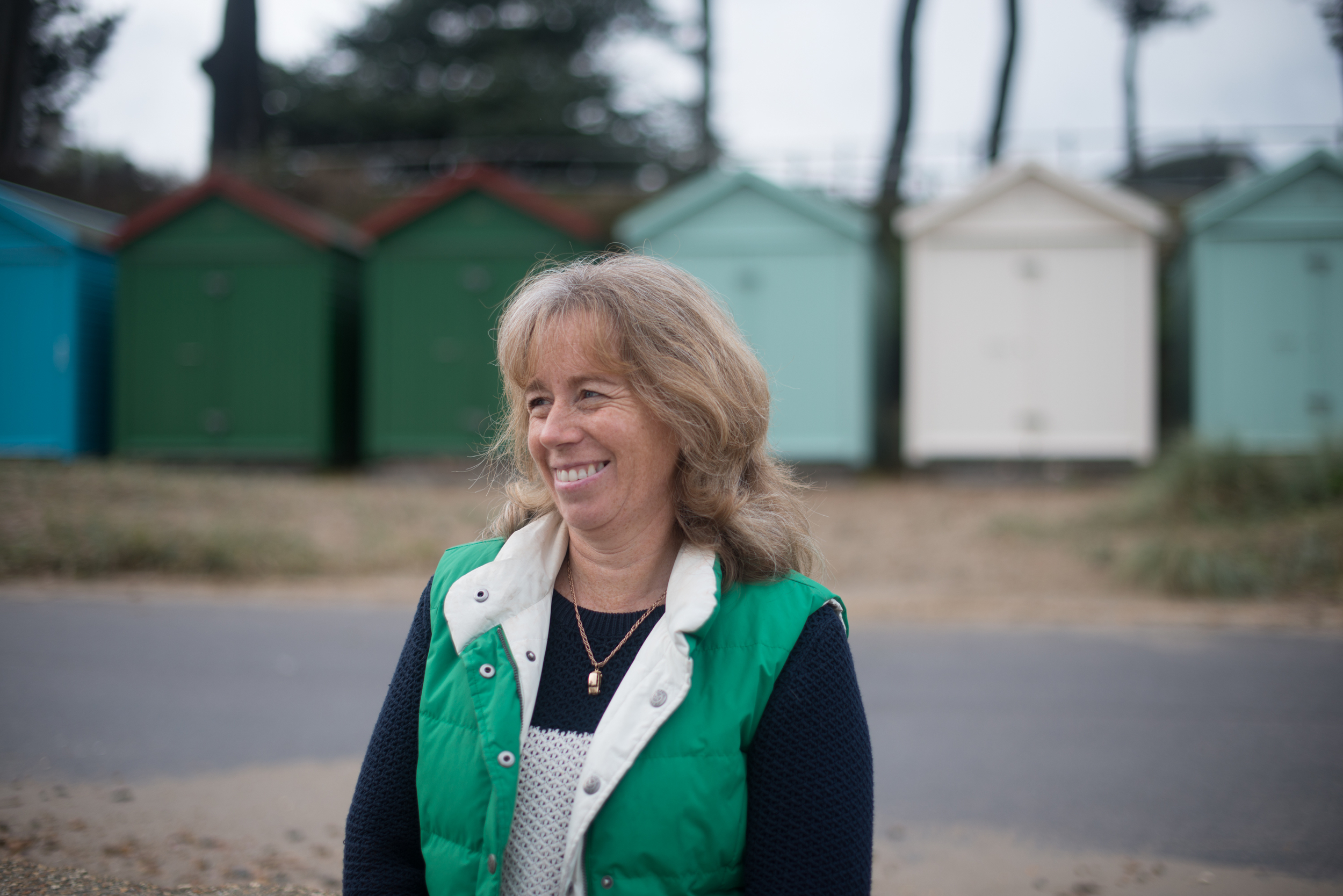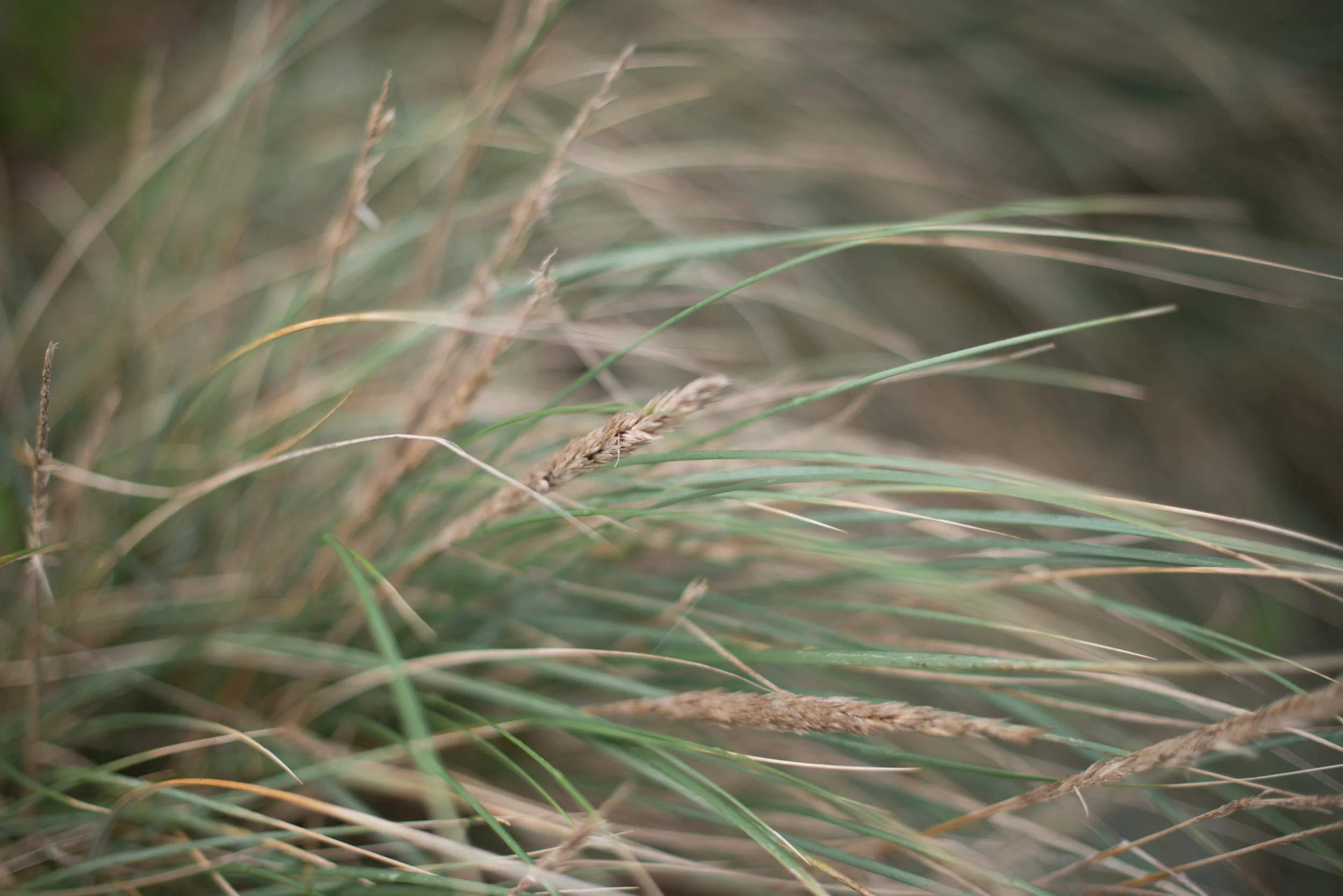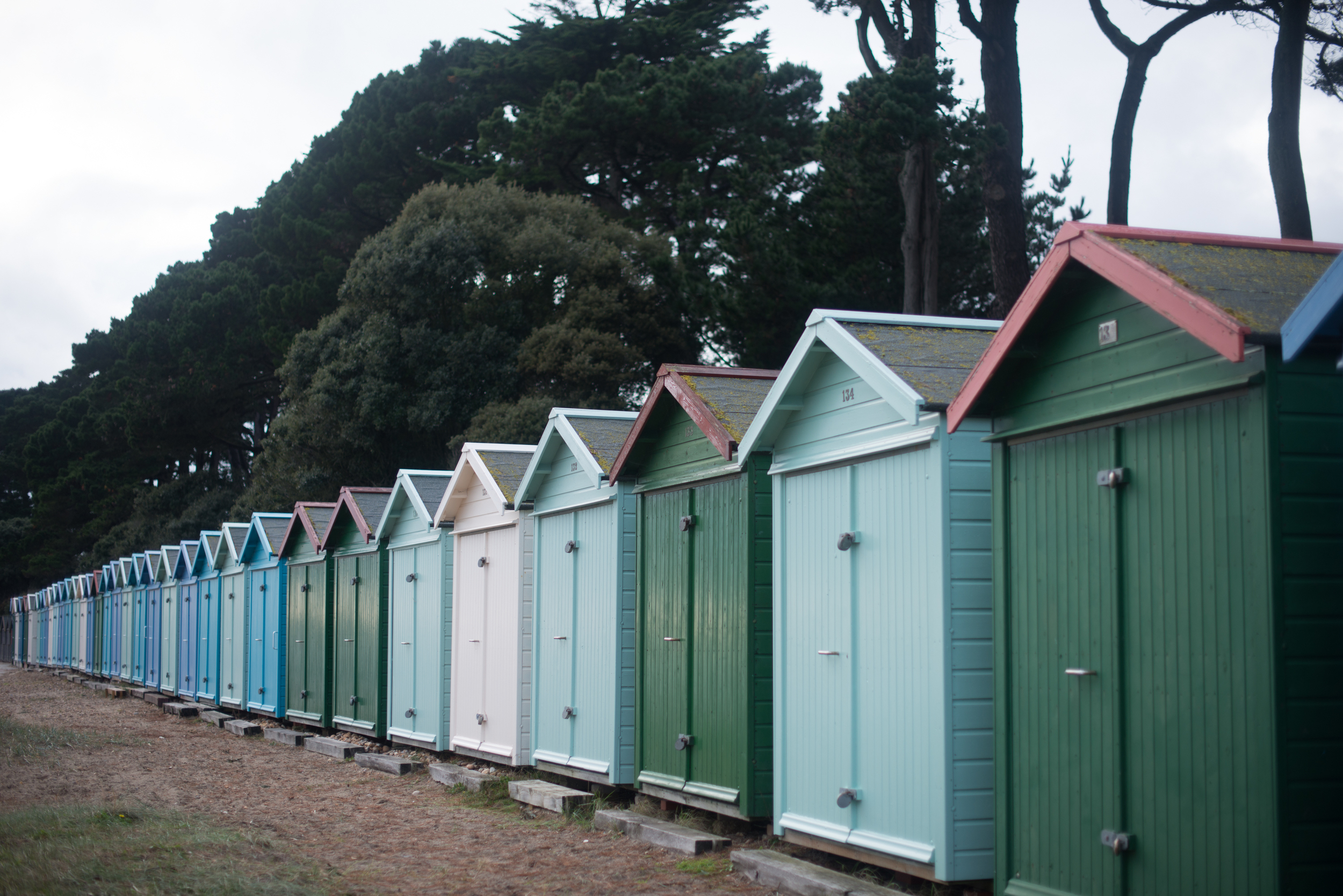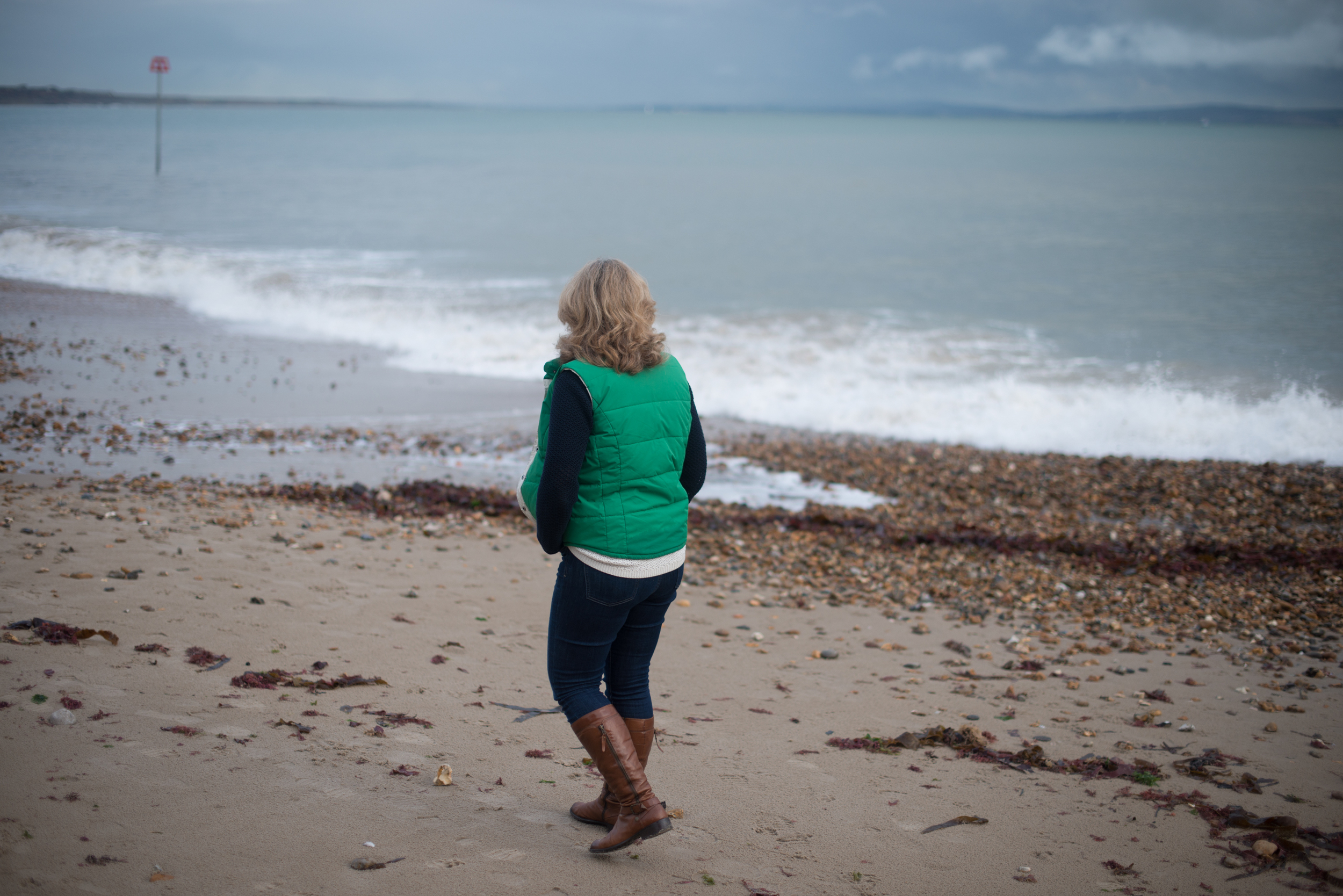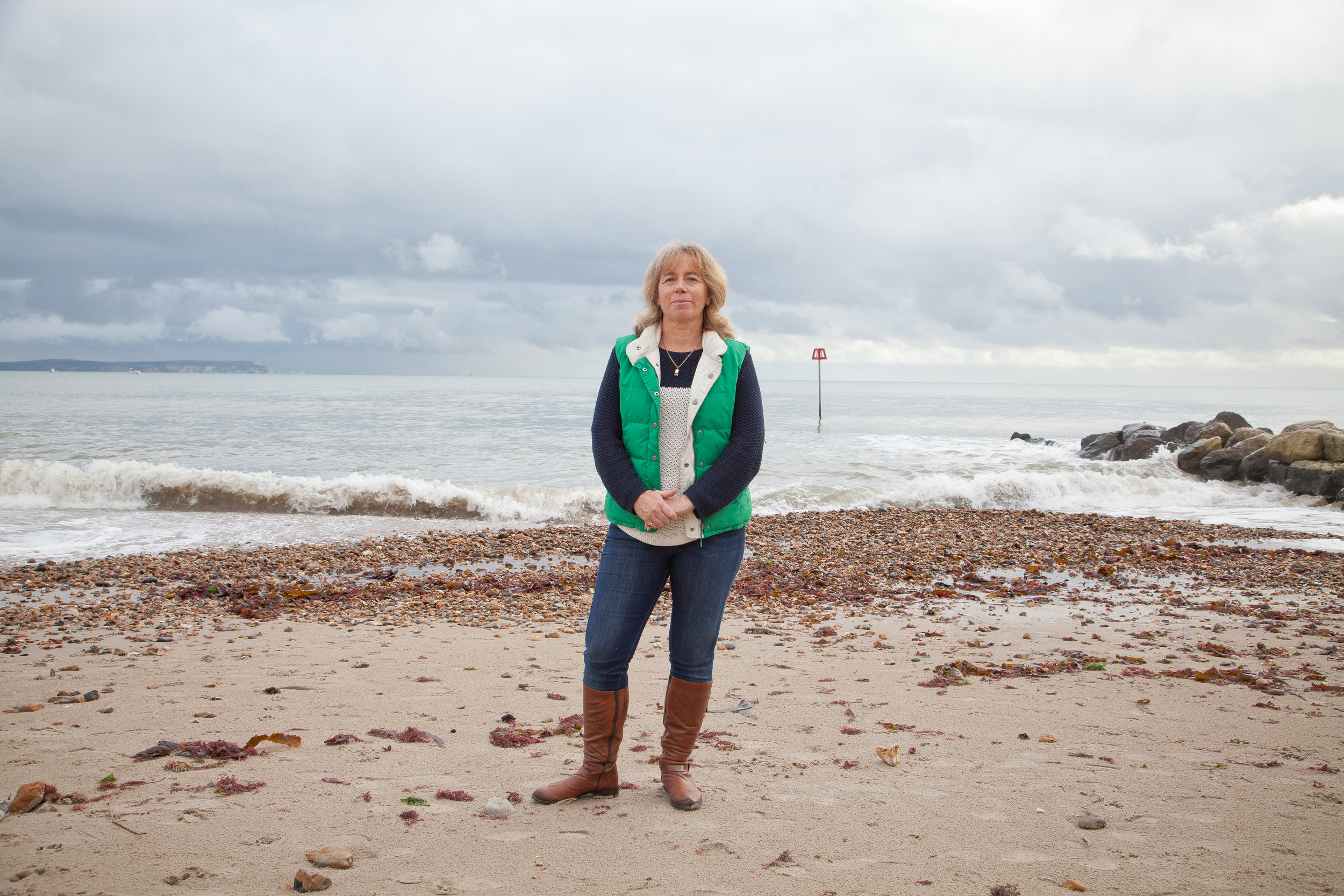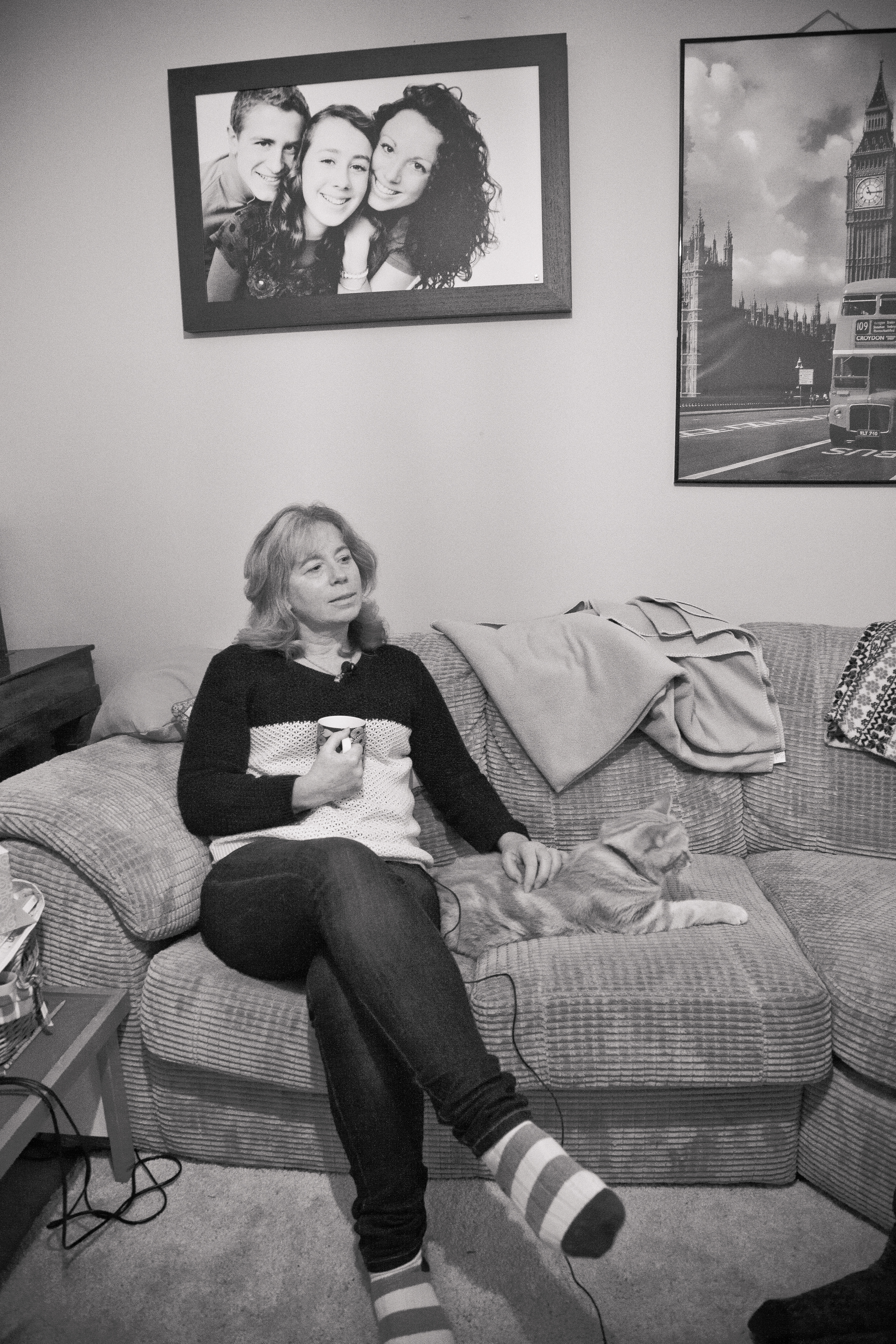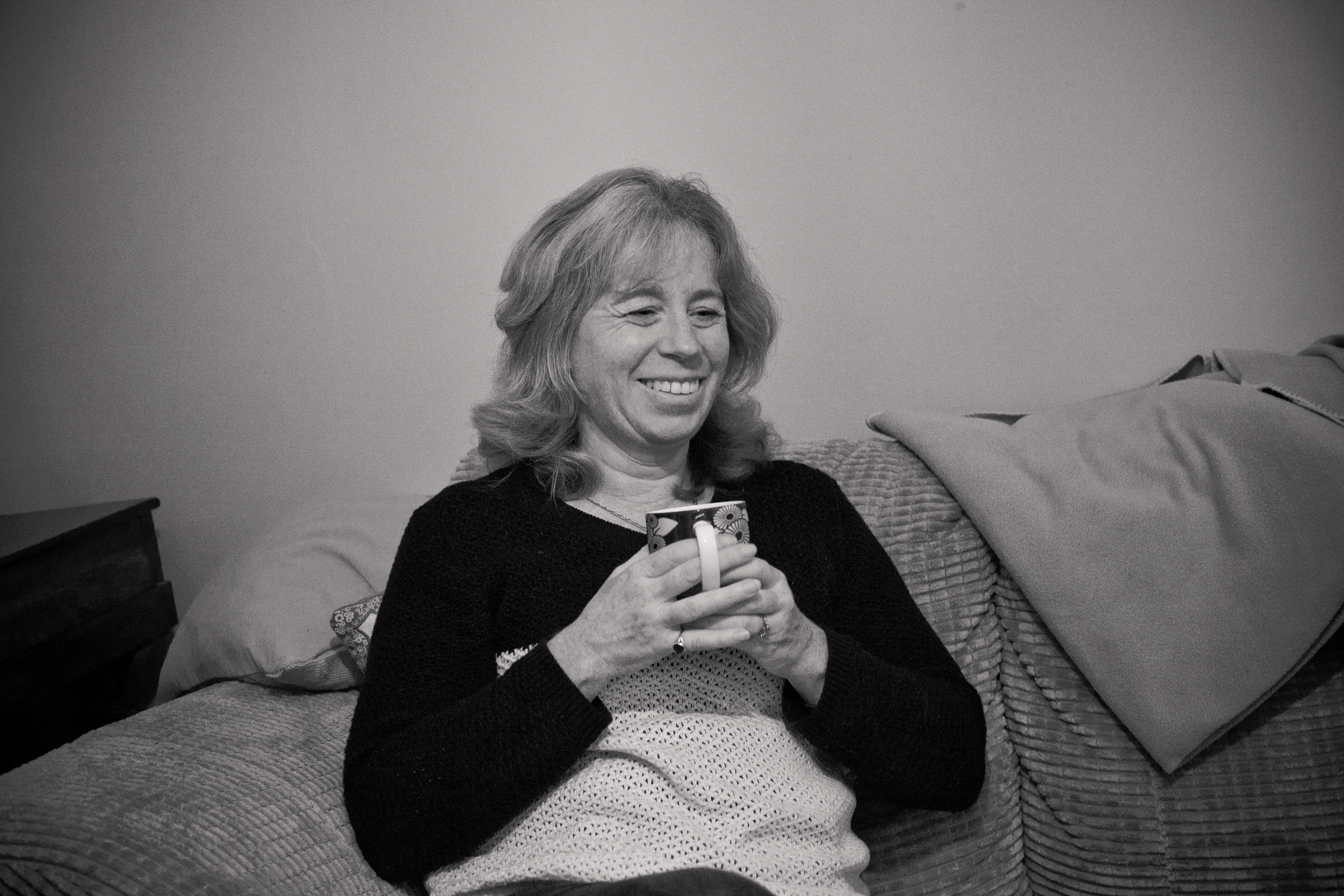LIZ & JOHN
ROSEMARKIE, SCOTLAND
Could you start, Liz, by telling us a bit about the picture: where it was taken, when it was taken and maybe even going through the day?
“We were having a holiday with other families, in Rosemarkie, which is on the Black Isle, east of Inverness. It was a really lovely day and we'd decided we would go to the beach on Dornoch for the day. We'd all set off in different cars and because John was a bit of an anorak about cars, trains, etc., we had to go on the ferry, which only took two cars, which went from Cromarty. So whilst everyone else drove round and parked in the car park and got out and started their picnic, we waited an hour on the shore so we could take our turn on the two car ferry! Then we spent the day on the beach on Dornoch with three or four other families.”
Can you tell me what's in the picture?
“My friend Karen took the picture, and she took lots of pictures that day. She took lots of pictures of the children, but she actually took pictures of each couple, which was really nice as well, because, as I've realised when looking through pictures, there's very few just of us as a couple, particularly when the children come along. It was the last picture we ever had taken together, so that was quite significant.”
Could you tell me a little bit about John as a person, who he was?
“He was 10 years older than me, he was an automotive engineer by training. He was very practical, very logical, total opposite to me! I was going to say he was quite quiet, but he wasn't particularly quiet, but he was quite quiet socially. He had lots of friends, which is quite unusual for a guy - he had a lot of good friends and had maintained those friendships. And he liked people, he wasn't the life and soul, but he liked being around people. He was very generous with his time, particularly as he felt it was something he could do, because he was so practical, so he was the person who would be forever helping people build things, put sheds up, or mending people's fridges, and he did all those things in the house as well.
He was very soppy, so he would cry quite easily, but he didn't like that in himself. He didn't ever really read fiction, but he had very good general knowledge, so we were completely chalk and cheese - I would spend time reading books and he would spend his time doing things on the car, mending and fixing. He didn't watch films, he was very happy though to put a film on, because it meant he could just go to sleep and the children could watch a film, or I would. He loved watching The Sound of Music with the children, because it just meant on a Sunday afternoon, put the film on, and he would happily sit there sleeping thinking he was doing his father bit really.
What he really liked, was he loved doing things. He would get up, he was an early riser, and he would be out making things for the children or fixing things or cutting the grass. He wasn't very good at sitting, he liked to be busy, he liked to be doing things. His relaxation was, well he bought the MG-C, the one that was at the wedding, he bought it the year before. He'd had old cars before, but he had an endowment come up and he had bought that car and he spent a lot of time doing things on it, and that for him was a real relaxation, because he travelled quite a lot for work, and so for him it was nice to have some time at home, just pottering around, doing practical, mechanical things really, it's what he enjoyed.”
Is that the car you took up to Scotland?
“No, that was the car that was at the wedding, the one that Ellen (my daughter) went away in.
I've talked about him being practical, but it doesn't really describe him as person very much does it? There was no side to him at all really, what you saw was what you got, he wasn't devious, not that other people are devious, so I don't really mean that, but he was just very straight forward, very straight forward sort of guy really.”
So when we asked you to go through and find a special photograph, can you tell me what you did and the process of that?
“When it was first mentioned, I just immediately thought of this photograph, because that's the one that I've chosen to put in a frame and the one that I think about. But then I thought, that was taken up in Scotland and it's not going to be practical and I'll go and have a look and choose another one, and I just found it really, really difficult, because that was the one I kept coming back to. That one, I think because it's a time with very happy memories and we really enjoyed the holiday and it was the one that I wanted to have up as a memory. In fact, it's him not long before he died, so it's not necessarily the most flattering one, it's wasn't sort of posed, it was just sitting on a wind swept beach, and he was older and he was greying. I mean I could easily have chosen one of, maybe on our honeymoon or maybe when we were a lot younger, but it just seemed to be the one that meant the most really I think. I think also, in the intervening years, it's been lots and lots of photos, but they've all had...well either he's taken them, or they've had the children in them, so there aren't all that many of just us really.”
Him being practical, he was talking all the pictures?
“Yes, which I suppose happens a lot doesn't it? That it's always one or other of the partner that does the picture taking really.”
So when we went to Mudeford today, it's obviously not Scotland, so has that been significant as a place in any way?
“Yes, because Mudeford is where, once we'd moved down to Winchester, that was the first beach that John ever took me to, and obviously I knew nothing about the south coast of England, it was all completely new to me, but it was where he had gone as a child with his family, because he was brought up down here, he'd spent a lot of time going to beaches down there. Then we started, for several years, all the way through actually having the children until he died, we would rent a beach hut for a week every summer, and take our boat down and that was where our summer holiday was, so it was very significant.”
How did you find the process of going there and taking the picture, even though it was not in the same place?
“It was nice, it was lovely. I always like going down there. I like going in the winter as well, that's almost as nice as going in the summer, in some ways it's nicer because it's like a real bonus when the sun comes out, and it is lovely. It was nice to remember those times, and it was nice to... I suppose, it's almost like honouring him in a way, which since he's died, a lot of the time, a lot of the things I do, even when I get irritated by it, I find I'm doing it to honour him, which sounds a bit high-falutin, but it's, you know... Even when I'm painting a room, or trying to sort out getting something repaired or I'm doing something in the house, or doing something with the children, I know I'm trying to do the best for him. So, sometimes I get really cross, I'm thinking, for goodness sake John, look what you've done to me, this is really annoying, why can't I just do it my way? But I don't, I do it the way he would have wanted it done. So today was a little bit like that, it was nice to honour him I suppose, and to remember.”
Have photographs been important to your memories of John?
“Yes, I mean I don't know if it's any more than anyone who hasn't lost a partner, because your photographs are very special anyway aren't they? Because they just help you to... Well you just go back and remember those times.
Yes, certainly, for us to have those photographs is very special because as time goes on and you're growing up, you're getting older and the children are getting older, you still want to have that person as part of your life, and having them there in a photograph, or in albums and looking back at them, is really special. Especially, I think, for the children. So Joanna, who's the youngest, was quite little when he died and it's really important for her because she will only have snapshot memories really, and it's important that she has those (photographs), that she can see the times that she did things with him. So I've got photos of her in the garage with him, sort of crouching down by a wheel arch fixing something. Well, she's holding a spanner, and he's fixing something, and she's in there, and that's lovely, because I can say to her, 'You used to go in the garage with daddy and do these things.' He'd say, 'This one's going to be my engineer'. And it's lovely for her to have those memories as well, or for me to be able to try and help her with those memories. So yeah, it's really important.”
“It was nice to remember those times, and it was nice to, I suppose, honour him in a way, which since he’s died, a lot of the time, a lot of the things I do, even when I get irritated by it, I find I’m doing it to honour him.”
Is that sort of thing that you do regularly?
“We look back at photographs a lot, yes. When you asked me to do this, and I started looking through all the photograph albums, I realised this time around, sometimes it's really hard. There've been certain anniversaries or times when I've almost felt like I was tormenting myself going through albums, but it was quite cathartic and it was quite important. But actually now, it's just really nice, when you look through them it's lovely to do it. It's a good feeling to go back and remember those times.”
Could you tell me a bit more about that, what changed it from being difficult to being ok?
“I suppose it was time. I can't say that it's not still difficult, because I'm sitting here struggling a little bit. When it first happened, not thinking about photographs, there was a sort of numbness that sets in, and then you're not numb and it's lots of different emotions, and I can remember, I think probably the first anniversary, getting all the photographs out, and actually getting a lot of letters of condolence and looking through them. That was almost... I felt like it was, not punishing myself, but it was something I had to do, but it was quite a good thing to do, because it allowed me to wallow a bit, but that felt like I was giving myself permission to do that and that was ok, and it was alright to be a bit pathetic and to cry and to be upset, because why shouldn't I be able to do that? I was giving myself permission and I'm allowed to do that, and I probably had a bar of galaxy at the same time, possibly a glass of wine, I can't remember. I would do that quite secretly, when the children were in bed, because that just seemed a bit hard, to have their mother sitting there weeping over photographs, but it was a way of, well, something concrete. To actually look at his face and remember was quite important.”
"He'll always be the children's father, so I've always felt it's important to talk about him and for him to be part of our lives. Most of the time that's fine, and it's fine now, although I'm crying, it's actually fine, and it's just as it should be really, but it still makes me cry, but I don't ever feel as I did in those early days. It's just an acknowledgement really, that it is sad, but we've all got on with it, and things are really good.”
Have you got anything else that you'd like to add?
“Well, it didn't sound very positive what I was saying, and actually, at this stage, things are really positive. We have moved on a lot, and we still talk about him probably every day. At Ellen's wedding, I think people were probably a bit like, 'Woah, there's been a lot of mentions about somebody who's not been around for 10 years,' but actually, just because he's not here, it doesn't mean that he's not a huge part of our lives. He's the children's father, so he'll never not be that. And I think that's one of the hardest things, is that somebody dies, and of course you get on with your life and things do become easier, but they're always part of your life because of the role they've had in it. He'll always be the children's father, so I've always felt it's important to talk about him and for him to be part of our lives. Most of the time that's fine, and it's fine now, although I'm crying, it's actually fine, and it's just as it should be really, but it still makes me cry, but I don't ever feel as I did in those early days. It's just an acknowledgement really, that it is sad, but we've all got on with it, and things are really good.”
